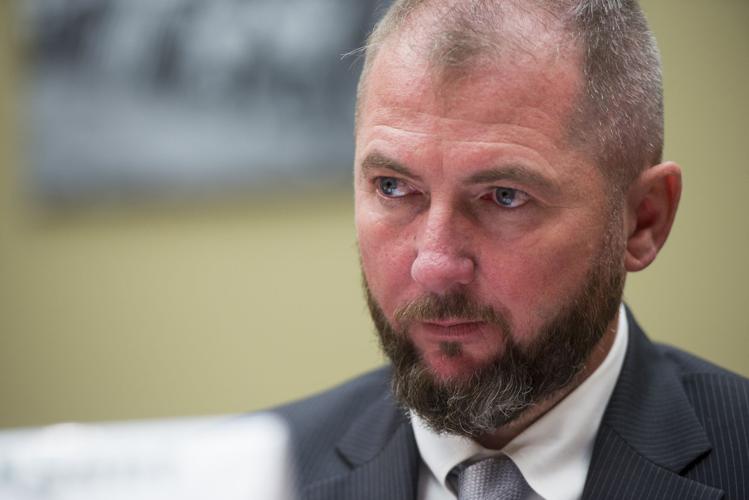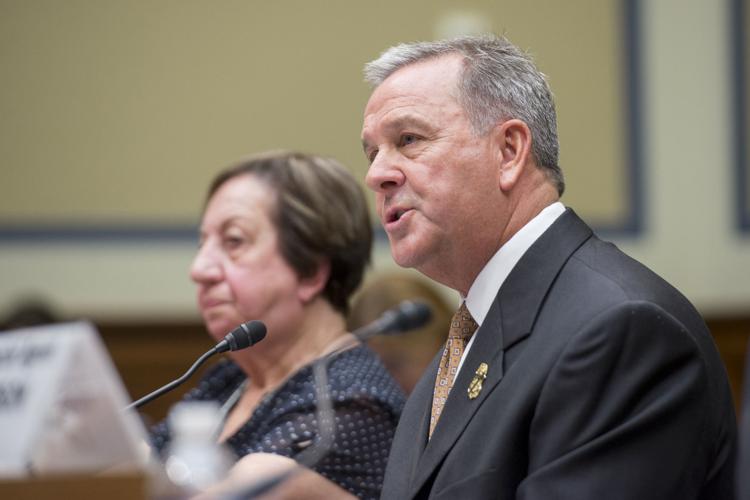WASHINGTON – Six years later, Josephine Terry still has trouble talking about the slaying of her son, Border Patrol Agent Brian Terry, who was killed in a Rio Rico shootout where guns were later traced to a botched government investigation.
In sometimes-emotional testimony to a House committee earlier this week, Terry discussed how she felt left in the dark on probes into the Bureau of Alcohol, Tobacco, Firearms and Explosives failed Operation Fast and Furious.
That operation turned a blind eye to thousands of guns sold illegally to straw buyers in Arizona in hopes of tracing the firearms to high-level drug cartel members, but ATF officers instead lost track of hundreds that later turned up at crime scenes.
“My only goal was to make sure he was laid to rest with honor,” Josephine Terry said of her son. “That honor has been insulted by cover-ups and deceptions from the very people he served.”
Terry pleaded with lawmakers to compel the release of information that would shed light on the Justice Department’s probe into her son’s death.
“I need you to find out why Operation Fast and Furious was allowed to happen,” she said to members of the House Oversight and Government Reform Committee, which has been investigating the operation for years. “I need you to find out why those involved were all given soft landings for their lives and careers.”
The committee invited Justice Department to the hearing to testify, but the agency declined to do so, citing ongoing litigation by the committee against the department. In that letter Monday, the department also declined committee requests to unseal information about Operation Fast and Furious.
Robert Heyer — Josephine Terry’s nephew and Brian Terry’s cousin — called the situation “mind-blowing.”
“Are you telling me they didn’t know that the weapons found at the murder scene were from this secret gun-running operation?” Heyer said. “They chose not to tell us — on numerous occasions.
“Nobody in government had the moral courage and integrity to come to the Terry family and tell us, ‘We know you guys are grieving for Brian’s loss, but we got more bad things to tell you: The men that killed Brian were carrying guns supplied to them by ATF,’” Heyer said after the hearing.
“That’s the real shame of what took place. And then a continued pattern of behavior by the Department of Justice to deny the tactic of gun-walking,” he said.
Terry was killed in December 2010 during a patrol near the border in Southern Arizona. His death was later connected to Operation Fast and Furious by ATF Special Agent John Dodson, who blew the whistle to the Senate Judiciary Committee.
In testimony Wednesday, Dodson said he’s faced negative consequences for breaking ranks ever since he went public.
“When I had a valid viewpoint to share that was viewed as unfavorable to the agency, I immediately became the outcast, dubbed the one who can’t get along, accused of being unethical, and became the one whose opinions and views were not even valued enough to simply be heard,” he said.
Dodson claimed he has been passed over for promotions and pay raises, barred from government buildings, transferred 11 times, subjected to internal-affairs investigations and more.
“You hear talk of people who have blown the whistle, and they have a ‘whistleblower card,’ and you’re taught that those people are untouchable,” he said. “It’s not until you find yourself in that situation, and you realize that that card doesn’t make you untouchable. It makes you unapproachable.”
But Dodson testified Wednesday that he does not regret blowing the whistle to expose wrongdoing.
“I just did my job,” he said. “I did what I thought I was supposed to do, what was expected of me. How do you have a regret for that?”
But Heyer said he was still disappointed with the pace of the government’s investigation.
“That’s not what we expect of our government (and) senior political appointees,” he said.







